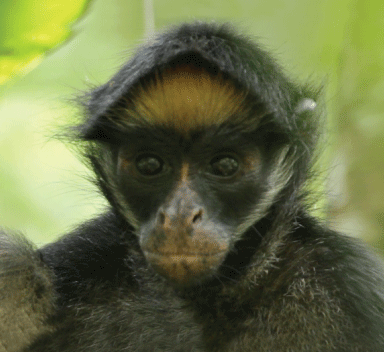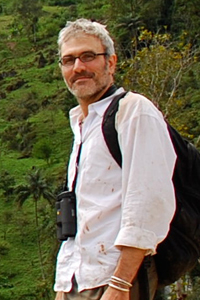
Primate Social Behavior
APRIL 4, 2014
Dr. Anthony Di Fiore
Department of Anthropology
What is the talk about?
Humans have long been fascinated with their evolutionary cousins in the primate world, monkeys. Dr. Anthony Di Fiore studies several species of monkeys in Amazonian Ecuador, and how the ecology of the area shapes their behavior and the societies in which they live. There are several different ways of studying primates, and these differ depending on species and ecological habitat. Methods include traditional observational studies as well as the modern use of technological equipment and techniques in molecular genetics. Through these methods, we have discovered remarkable things about the social behavior of our primate cousins, and how they may be both strikingly similar to, and vastly different from, humans.
About our presenter

Dr. Anthony Di Fiore
Anthony Di Fiore, Ph.D., is a professor at UT-Austin. He conducts long-term behavioral and ecological field research on several species in the primate community of Amazonian Ecuador to investigate the ways in which ecological conditions (such as the abundance and distribution of food resources) and the strategies of conspecifics together shape primate behavior and social relationships and ultimately determine the kinds of societies we see primates living in. This is a crucial and central focus in evolutionary anthropology, as understanding the ways in which behavior and social systems are shaped by environmental pressures is a fundamental part of the discipline. Dr. Di Fiore complements his field studies with molecular genetic laboratory work in order to address issues that are typically difficult to explore through observational studies alone, including questions about dispersal behavior, gene flow, mating patterns, population structure, and the fitness consequences of individual behavior. In collaboration with colleagues, he has also started using molecular techniques to investigate a number of broader questions concerning the evolutionary history, social systems, and ecological roles of various New World primates.